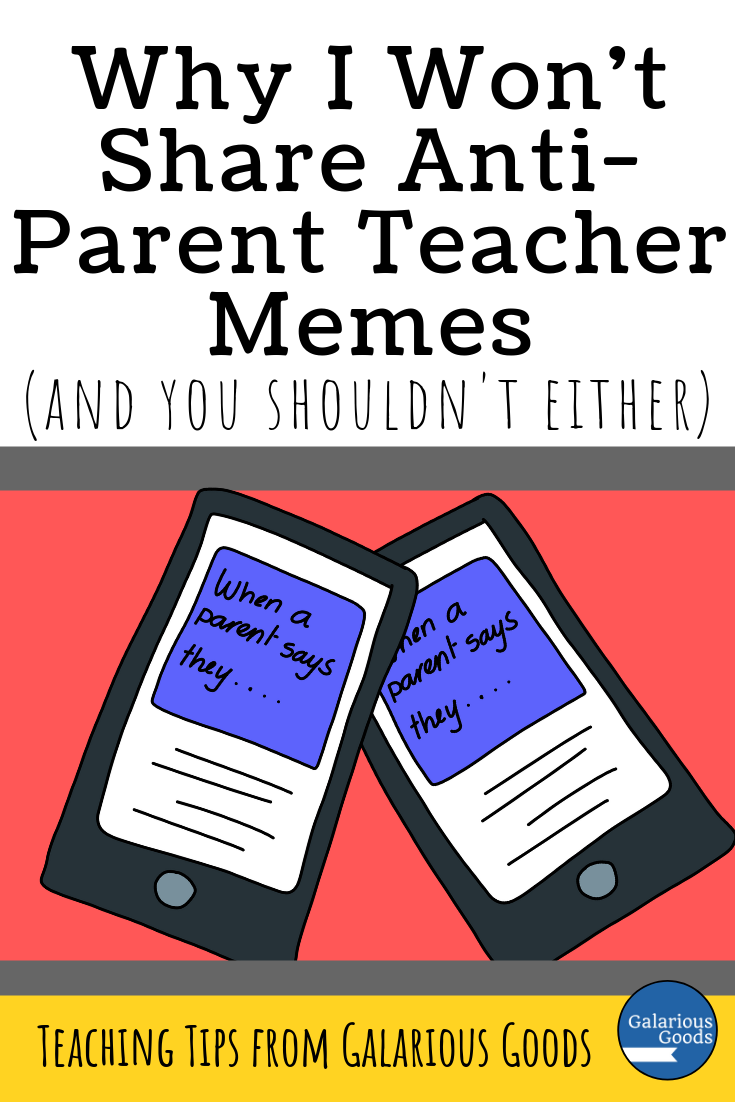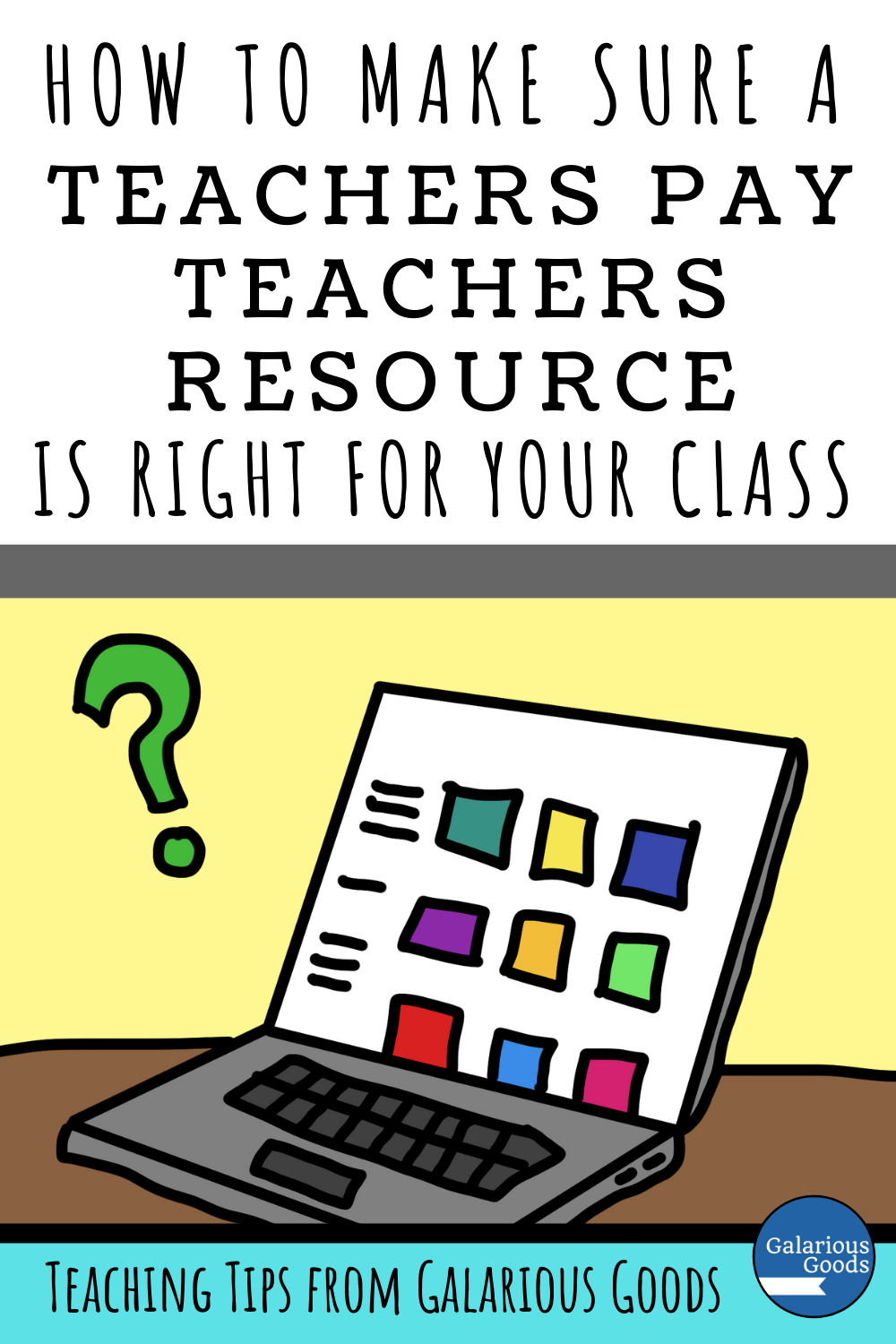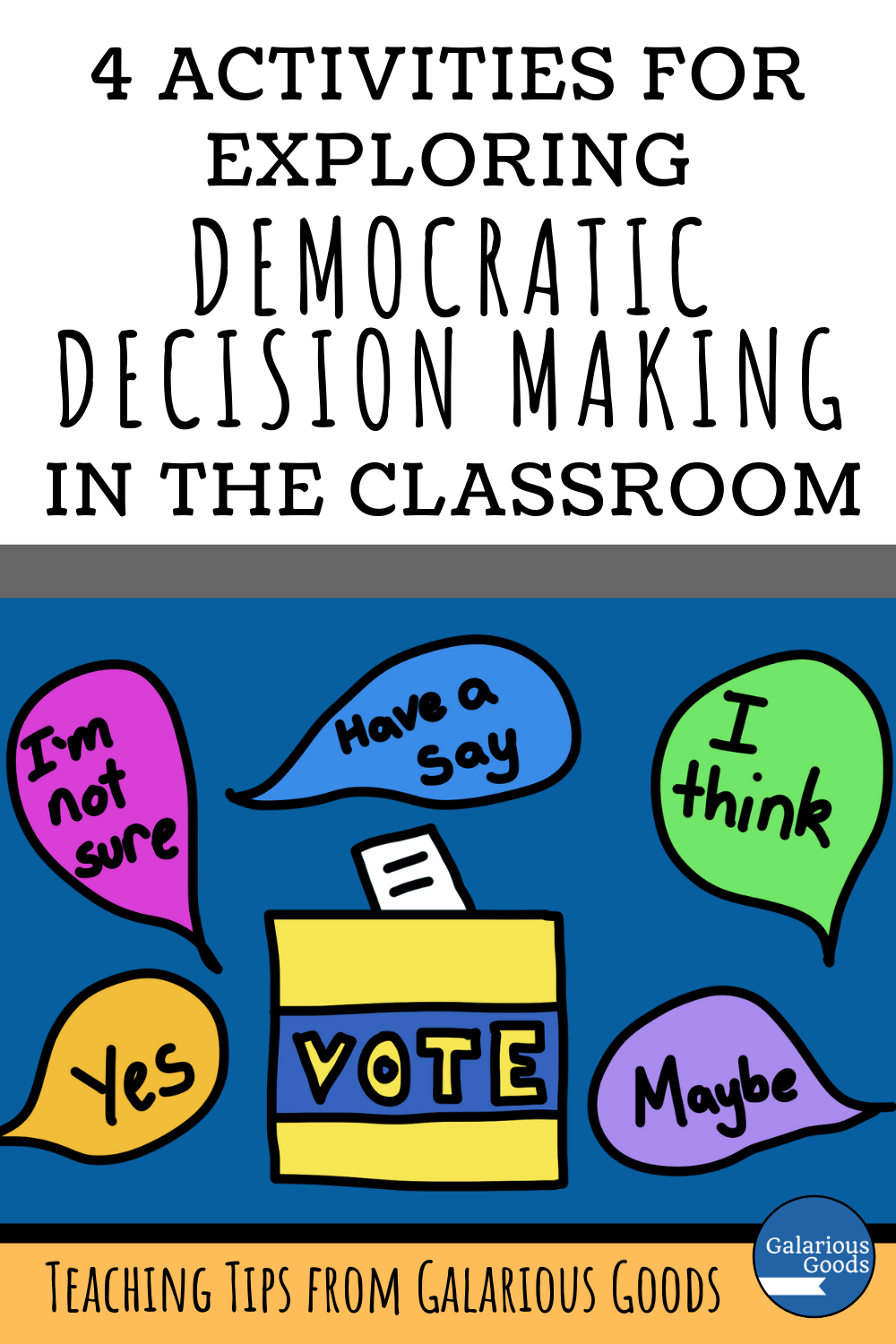Why I Won't Share Anti-Parent Teacher Memes (and you shouldn't either)
/There’s a popular type of meme you might see on teaching focused Facebook and Instagram pages or shared by teachers you know. They make fun of the ‘stupid questions’ parents ask. They state that the work of parenting is only being done by teachers. They portray all parents as neglectful, aggressive, quick to jump to the side of the child and lying about the behaviour of their child. The worst go out of the way to mock the home situations of their students or engage in racist stereotypes.
These memes get shared a lot, which is great for the algorithms of the pages which share them. But I won’t share them. And you - as a teaching professional - shouldn’t share them either.
Memes can be incredibly funny. They can connect the seemingly unconnectable (I’m personally very fond of popular culture meets Socrates memes). They can be topical and thoughtful.
But they can also be cruel and hateful. They can make broad generalisations. And they can fracture relationships instead of building them.
An Anti-Parent Atmosphere
So many of the anti-parent teacher memes embrace an us and them narrative. They place teachers as all-knowing and infalible, while parents are portrayed as ignorant and unwelcome.
Some of this is a result of the media and governments stirring up anti-teacher sentiment across the 2000s and 2010s as a way to get easy headlines and quick ratings. This made teachers feel like they were constantly under attack while some parents jumped on teachers as easy targets. Parents and teachers were pitted against each other as opposing forces - unable to reason with or work with each other.
It’s easy to see the memes coming from this. A ‘harmless’ way for teachers to hit back at parents who might be frustrating them or who feel like they’re making the job much harder. But so many of these memes are lumping parents as one homogenous group. They’re hitting down at people who often have little power in the school system. And when you see enough of them, when you share enough of them, at least part of you is buying into the beliefs behind them. At least part of you begins to believe the lazy/aggressive/clueless/permissive parent narrative.
When you start to believe this, even just a little, it’s ultimately going to backfire on you as a teacher. Parents know when they’re not respected or welcomed by teachers. They can see which teachers welcome parents into the room while they are pushed away. And they’re more likely to speak out about smaller issues. They’re more likely to share their concerns with other parents. They’re less likely to go out of their way to make your year easier.
A Lack of Empathy
Many anti-teacher memes rely on broad caricatures of parents instead of encouraging you to see the actual parents in front of you. Is the parent in the email really asking ‘stupid questions’? Or is English their second or third language and your instructions are unclear? Or do they have anxiety and they are in a better position to work with you when they have clarification? Are the parents neglecting ‘behaviour management’ at home, or have they been to a range of professionals and taken several courses to help them with their child’s behaviour and they’re hoping to work with you for a positive year?
So often we don’t really see what’s happening in the homes of our students. We don’t see parents holding together families with baby-sitters, doctors appointments, expensive therapy sessions and hours and hours of work. We don’t see the school refusal, the outbursts when the school day is finished, the serious discussions parents have as they work for the best for their children.
As a teacher, you’re also a newcomer to the life of the child. Parents have years of accumulated experience and they usually know their own kids. When they say that this behaviour is unusual or that it doesn’t happen at home, it’s worth listening to them and working with them to see if you can make a difference together. Afterall, how many parents of ‘model students’ tell you that they aren’t that well behaved at home? Plenty of children act differently in different situations.
And Don’t Forget . . .
When your frustration level is high, it can be easy to like or comment on an anti-parent meme on Facebook. But don’t forget how public those can be. It only takes one friend of one of the parents in your class to comment on the same post and they might see your like or comment.
Do you really want to parents in your classroom thinking that those are your beliefs about parents? Will that make your job easier?
Working With Parents
Actual aggressive behaviour from parents is not acceptable - it needs to be recorded, reported to your Principal and referred to your Union if required. And if you suspect a student is being harmed by their parent, you must go through the reporting procedures for that. But when the parent behaviour is annoying or frustrating, there are more productive ways of dealing than sharing anti-parent memes.
Take a moment to put yourself into the shoes of the parents if you can. Think about previous experiences they may have had at school as a student or a parent - can you reassure them and let them know that you want a positive relationship with them and their child? Acknowledge the ways schools have changed and explain any educational jargon you use. Give parents time to speak - don’t dominate the conversations - and let them know that they are welcome to ask follow up questions. Let all the parents know how and when they can communicate with you. Know that good relationships with parents will be rewarding for them, for your students and for you.
And for those parents who resist a positive relationship, take the higher ground. Be friendly and respectful and refuse to turn it into an us and them situation which will eat all your time.
Save your time for the Spiderman Socrates memes instead.
















